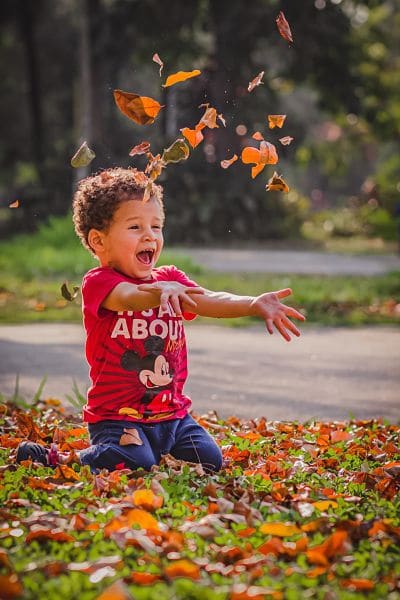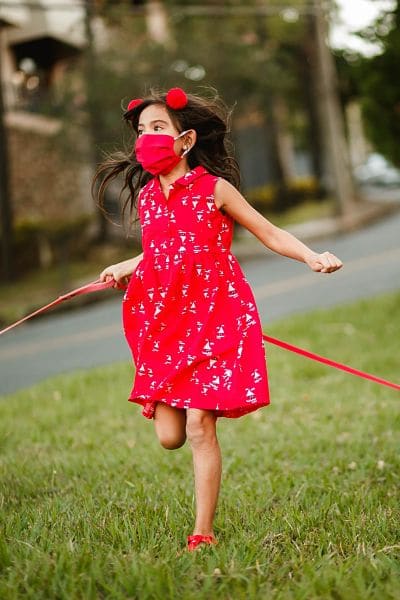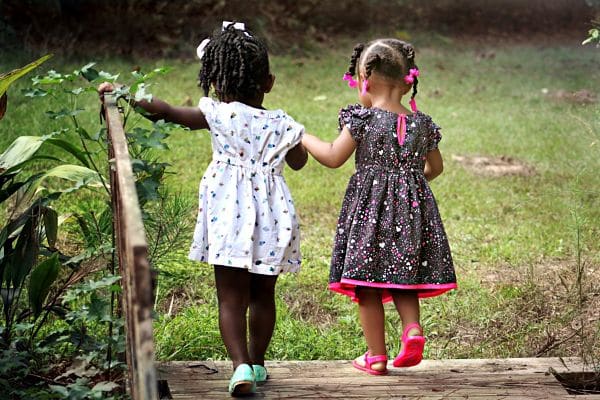As we’ve noted in a previous blog post, the idea of outdoor classrooms isn’t new – but it may seem like it to your district’s parents, officials and even some staff members. To help everyone get more comfortable with the concept, here’s a quick summary of recent research into the benefits of outdoor learning.
Child Development
What if simply spending more time outside, even in a learning environment, could support kids’ healthy psychological development?
Plenty of research says it can. In one of the largest studies, Danish researchers used satellite imagery to determine how much greenery almost one million schoolchildren encountered in and around their homes. They found that children who grew up around the lowest levels of vegetation had a 30-percent higher risk of “a wide spectrum of psychiatric disorders,” even after researchers adjusted for the effects of family health history and socioeconomic status. These children were also at higher risk for mood disorders and substance abuse.
These findings are similar to those from studies of children living in the United States, for example:
- The psychological impact of life stresses (like bullying) was lower among children with higher access to nature than among those with little access to nature. Like the Danish study, the link held even after accounting for other variables.
- For children with ADHD, a 20-minute nature walk provided a boost in concentration “roughly equal to the peak effects of two typical ADHD medications,” indicating that “doses of nature” might serve as a safe, inexpensive, and widely accessible new tool for managing ADHD symptoms. Only the walk in a green space provided the results; walks of similar length in quiet urban areas didn’t have the same effect.

School Performance
But will kids really absorb lessons taught outside, even through the novel situation and all the potential distractions?
Researchers developed an experiment specifically to address that question. They asked teachers to present a 10-week life science curriculum to each of their classes. Every week, teachers taught one lesson outdoors in a green space. On a different day that same week, teachers also taught indoors a second life science lesson, carefully designed to match the outdoor lesson. Students consistently showed more engagement immediately after returning from the outdoor lesson; specifically, researchers noted “the number of redirects after a lesson in nature was roughly half (54 percent) that of redirects after a classroom lesson.”
Other studies have found the following:
- Students do better at motivating themselves to learn when taught in an outdoor setting, no matter their gender or school culture. Researchers speculate it’s because the students enjoy the increased relevance of the lessons and the hands-on experience that is often part of outdoor learning.
- Students who take classes outside enjoy the experience and show a higher degree of long-term knowledge retention.
- Finally, a study analyzing 13 previous studies on learning in outdoor settings concluded that outdoor education can promote students’ social, academic, physical and psychological development.
As an added bonus, there is evidence that not only students but teachers can benefit from the outdoor learning experience. In an era when teacher shortages are common and retention is important, adding an outdoor classroom could play a role in reducing teachers’ stress levels and rejuvenating their own attention and engagement.
Health Impacts
As we’ve already noted, outdoor learning has been linked to improvements in students’ mental health, but it can also be linked to improved physical health as well. Researchers generally recognize a correlation between time spent outside and higher levels of physical activity, even outside of school hours. For instance, one study of a European “forest school” found that children were more active (as measured by pedometers) on outdoor learning days, when their sedentary time dropped from around three-quarters to a third of their school day. More physical activity has obvious benefits in the war against childhood obesity.
Preschool and elementary school age children also see benefits in their motor skill development such as strength, balance and coordination. Perhaps an article in the Atlantic about preschool outdoor learning programs summarizes it most succinctly:
“Give young kids the opportunities to engage in… the natural world, and they develop just as organically as any other creature. They learn creativity as they explore and engage with complex ecological systems — and imagine new worlds of their own. Freed from playground guardrails that constrain (even as they protect), kids build strength, develop self-confidence, and learn to manage risks as they trip, stumble, fall, hurt, and right themselves. Research shows that the freedom of unstructured time in open space helps kids learn to focus. It also just feels good: Nature reduces stress.”

The Developmental Benefit to Your School District
Now we can take a closer look at social development – and not just of students, but of the community as a whole. Students develop important social skills when playing outside with their peers. However, a formal outdoor learning program can engage entire families, increasing their connection to the school. Because outdoor activities may need more volunteers, parents and community members are encouraged to get involved with student learning. These stronger bonds can lead to greater community support for each campus and for the school district as a whole.
If your school board, parent-teacher organization or any other group wants to learn more about what it would take to create the perfect outdoor classrooms for your district, give us a call at Park Place Recreation Designs.
We are a commercial-grade park and playground equipment consulting and design firm that, for almost four decades, has provided South Texas with safe, durable and competitively priced playspaces that address children’s developmental needs. We can put our extensive knowledge and creativity toward answering any questions you have and adapting any space to meet both your outdoor learning needs and the requirements of your budget.
Park Place is a TXMAS-approved vendor and a member of the Buyboard, and we can provide a “Buy American” certificate for anyone purchasing equipment under the American Recovery & Reinvestment Act.
